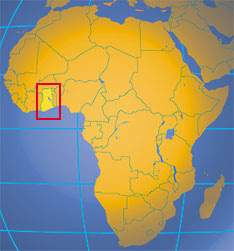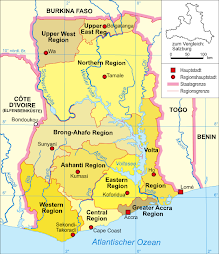“It’s always easier to help those who can help themselves than to help those who are helpless.” – Schumacher, 1973
This is a tricky subject. Engineers Without Borders, like so many NGOs and other organizations working in development, works with local people who are entrepreneurs and have some skills and ambition that sets them apart as leaders. In NGO jargon we call them “champions” and we support them by helping them gain access to more opportunities. This could come in the form of training, education, infrastructure, technology, micro-credit, or organizational support (ie. helping farmers to form cooperatives) to name a few. The hope is that by supporting the entrepreneurs of the community it will pave the way for people in more vulnerable circumstances, who are naturally more risk-averse, to follow in their footsteps and eventually make the climb out of poverty as well. This means that we’re directly helping the people who are already making the climb out of poverty (or at least not living hand-to-mouth), and only indirectly helping those in the direst poverty. This trend is partly a product of donors trying to get the most results for their limited dollars, and partly a conscious decision made based on economic growth models. The really poor are often sick, uneducated and hard to reach, so what this discussion also brings forward is the difference between humanitarian aid and development aid.
- Humanitarian aid is a hand-out meant to establish a steady baseline condition for people who are going to die if they don’t get immediate help; of which there’s a critical role for.
- Development aid is meant to stimulate a steady climb of growth and prosperity from a relatively stable baseline condition, or at least one that is only slowly declining and rather than spiralling out of control.
 The motivation for development aid sounds fairly straightforward in principle. In practicality it’s of course more difficult to achieve the clean linear (let alone exponential) incline out of poverty, theory might encourage us to imagine.
The motivation for development aid sounds fairly straightforward in principle. In practicality it’s of course more difficult to achieve the clean linear (let alone exponential) incline out of poverty, theory might encourage us to imagine.Too much of a good thing…
Meet my friend Francis. Francis is a junior high school teacher in the small village of Kitare.
I met Francis at a workshop that was training people to supervise a water and sanitation mapping project in their respective communities and in the neighbouring villages. As is often the case, Francis received a letter the night before the training requesting his attendance to this 3 day workshop. So the next morning he got up early to make the 2 hour bumpy motor-bike drive into the town where the workshop was being held. (I’m sure there was a substitute teacher for his class…sic) When he arrived he found out that the workshop was for water and sanitation project supervisory training—something that Francis is not really qualified in except for one critical skill—he can read and write well. This puts Francis and so many school teachers in villages as a target for development project implementation.

Our champion, who is a teacher, a yam and cassava farmer, and small provisions store owner by day, and development project worker by drop-of-the-hat, finds himself torn between all of the opportunities to improve life for his family and community. Thus we have some competing forces.

There really are few arguments against the importance of education, which ironically is one of the lower paid jobs here in Ghana (unless you’re at a private school). My neighbour, who is a primary school teacher at a local public school in Tamale, is still waiting for her government salary that was due a week and a half ago. Several times now I’ve been reminded by teachers that the well respected professions: doctors, lawyers, business owners, etc. were all students first, yet teachers and the education system are continually under-resourced.
So here we have our “champions,” who we are so eager to work with. In a small village where we have the highest levels of poverty and the lowest levels of infrastructure, we also find many development projects. That’s where the greatest need is. Often times, only a few people can read and write. So we go to a school to find a teacher to help us work with the community. This tactic isn’t necessarily flawed, except that everyone is doing it.
From needs based to assets based…
Development projects often start with a needs assessment, but the problem with a needs assessment is that it only tells you one half of the story. It misses out by putting the focus on what is lacking instead of what is there. More and more an “assets based approach” is the becoming adopted in community projects, which facilitates planning and resource management as opposed to just gap filling. Who will do this planning and resource management?
If you want something done right, you do it yourself. But if you want it done sustainably, perhaps you shouldn’t be the one doing it…
Let me tell you about my placement and what we’re trying to do. I am now partnered with the regional government, in the Regional Planning and Coordinating Unit (RPCU). I still correspond with UNICEF on their supported programs, but my placement is officially with the RPCU. In the end it appears more appropriate that I am with the government and not with UNICEF, because UNICEF is trying to primarily be a funding partner to governments and community organisations, rather than be responsible for any project design and implementation.
The RPCU works with the District Assemblies (the next level of government down) and the Development Partners (NGO’s, international organisations, donors) in the Region. Some Development Partners are working through the Regional Governments and are somewhat managed by them, others in the name of efficiency are not. These other Development Partners prefer to contact the communities directly, or to work directly with community organizations and by-pass the under-resourced, sometimes corrupt, slow moving governments. The problem with this efficiency is that so many of them are doing the same thing. So Francis and other community leaders get many urgent invitations to help with an efficient project where the dollars are moving quickly. The Development Partners aren’t all aware of who is doing what where, and frankly, they don’t view knowing that as a priority for their efforts.
 The trouble is that the government is the best positioned to be managing all of these different players in the region, but they are undermined in their efforts when they are taken out of the process. It’s true that limited staff, under-developed capacity, and corruption don’t make the government an attractive partner to work with, but looking to the future how is it going to improve? The fact is that there are skilled hard working people working for the government within its ranks, and positive change is happening all the time.
The trouble is that the government is the best positioned to be managing all of these different players in the region, but they are undermined in their efforts when they are taken out of the process. It’s true that limited staff, under-developed capacity, and corruption don’t make the government an attractive partner to work with, but looking to the future how is it going to improve? The fact is that there are skilled hard working people working for the government within its ranks, and positive change is happening all the time. The staff of 4 in the RPCU, which serves 20 District Assemblies and over 1.8 million people, have welcomed me to their office and will be my colleagues for this next year. I hope that I can learn the right lessons and grow with them so that ultimately Francis will see improvements in his community, and not have to compromise his important calling of teaching tomorrow’s champions.
The staff of 4 in the RPCU, which serves 20 District Assemblies and over 1.8 million people, have welcomed me to their office and will be my colleagues for this next year. I hope that I can learn the right lessons and grow with them so that ultimately Francis will see improvements in his community, and not have to compromise his important calling of teaching tomorrow’s champions.

